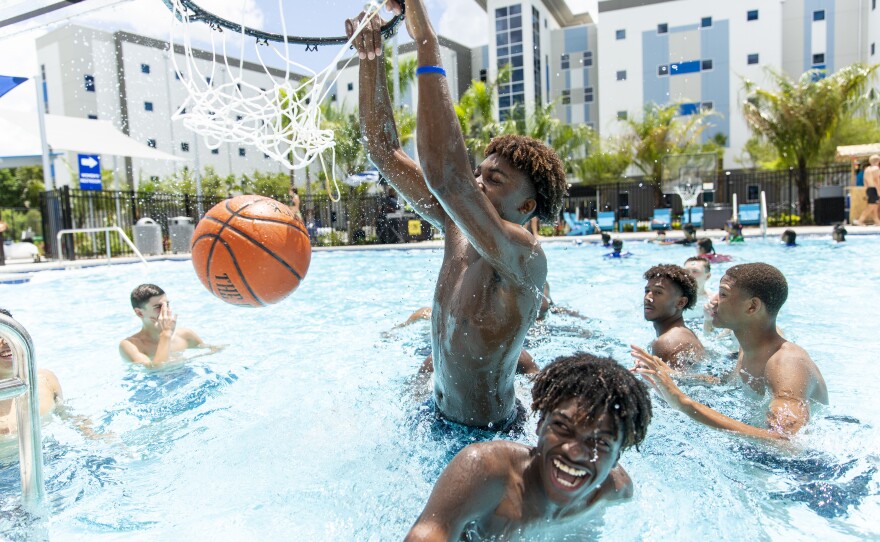For young athletes who are serious about their sport, granola bars and orange slices just won’t do. Bradenton is home to IMG Academy, a boarding school where elite middle and high school athletes live, study, train and of course eat. The campus also welcomes college athletes, pros and amateur adults.
Jackie Barcal is IMG’s head of nutrition. She offers the following tips on how to fuel young athletes—and advice for the rest of us.
“When you’re training day in and day out, it’s really a game of recovery,” Barcal says. IMG athletes train three to four hours a day, so their nutrition plan should help them refuel, rebuild and rehydrate so they’ll be ready for another workout tomorrow.
THE ZEST: Get more food and nutrition advice from experts.
1. Aim for baby steps, not perfection. The ultimate “performance plate” for student athletes includes one-third each of whole grains, lean protein and colorful fruits and vegetables. Help students set realistic nutritional goals, such as eating one additional fruit or vegetable per week. Plan for 18 nutrient-dense meals and three cheat meals per week. Even for adults, small portions of potato chips are fine occasionally. “Never eat straight out of the bag,” Barcal advises.
2. Eat early and often. “It’s not only about how much you eat, but also when you eat,” Barcal says. Many students—and adults—eat little or nothing in the morning, then load up at night. “We call that a backwards fueling pattern,” Barcal says. For stamina to fuel workouts and academics, students should set their phone alarm so they remember to eat every three to four hours.
RECIPES: Find healthy recipes (and some splurges, too) from The Zest podcast.
3. Choose the right carbs. High-quality carbs provide energy for workouts and brain power for academics. Instead of chips, candy and soda, encourage students to choose whole-grain pasta, brown rice and whole-grain bread.
4. Pump up the protein. “The more you train, the more muscle breakdown you have,” Barcal says. Student athletes should aim for 20 to 30 grams of protein every three or four hours, preferable from natural food sources rather than protein powders. High-quality protein sources include grilled chicken breasts, lean turkey and steak, whose iron is especially important for female athletes. A serving is about the size of your palm. Dairy, eggs and beans are good non-meat protein sources.
5. Snack smart. Busy students should stock their backpack with protein-rich snacks, which will keep them full longer than chips or candy. Shelf-stable snacks include beef jerky, protein bars and trail mix.
6. Hydrate wisely. If you’re training for longer than an hour or in a hot environment, drink 4 to 6 ounces of liquid every 15 to 20 minutes. Sports drinks and electrolyte beverages can replenish salt lost from sweating, as can salty snacks like pretzels or crackers. Smoothies and chocolate milk can help you rehydrate quickly, but avoid caffeinated energy drinks.
SUBSCRIBE: Never miss an episode of The Zest podcast.
7. Go to bed. “Our hunger hormones are regulated during sleep,” Barcal notes. Shut off electronics about an hour before bedtime—the blue light interferes with sleep—and aim for at least eight hours of shuteye.
8. Form lifelong habits. “I would say the biggest difference between our youth athletes and our pro athletes is the focus on routines,” Barcal says. Help young athletes develop a consistent food routine that they can adjust with their age and activity level. Barcal says even adults should eat small, frequent meals to avoid getting too hungry. Skipping meals, using meal replacement shakes and not snacking are “the biggest mistake I see adults making,” Barcal says. “It usually ends up backfiring.”









